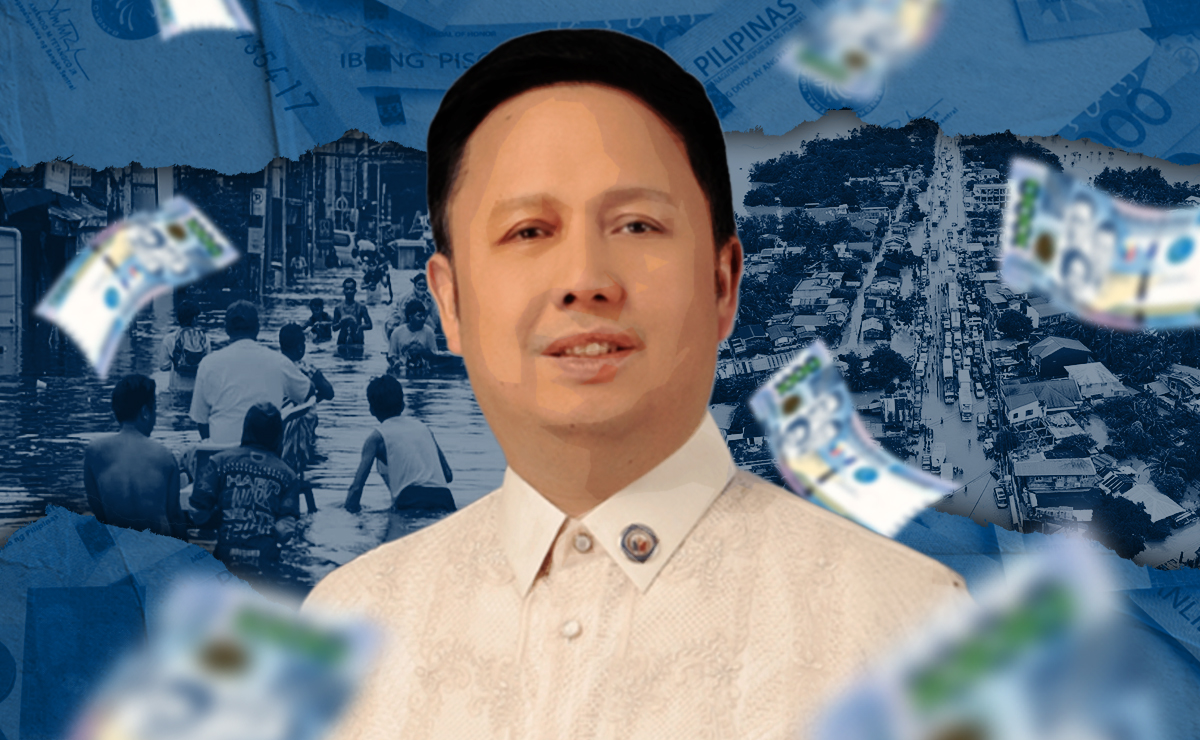Manila – In a highly anticipated televised debate that captured the attention of netizens and political observers alike, Madam Malutiquia and Undersecretary Claire Castro went face-to-face to discuss ongoing controversies surrounding alleged corruption in the Philippines, including the claims brought forward by former Congressman Zaldy Co. The discussion, punctuated by pointed exchanges, raised questions about transparency in the national budget, the role of government agencies, and the line between freedom of expression and incitement.

The segment, streamed live on YouTube, opened with an introduction of the two figures. Madam Malutiquia, a prominent political strategist and founder of Publicus Asia Incorporated, faced off with Auntie Claire Castro, a government undersecretary, known for her outspoken nature. The host framed the debate around the recent third installment of Zaldy Co’s exposé, which alleged unauthorized “insertions” and billions in questionable disbursements within the national budget.
From the outset, tension was palpable. Both speakers addressed the confusion surrounding the whereabouts of key figures implicated in Co’s allegations, including the mysterious Gotesa, whose location remained unclear despite multiple reports and claims. Malutiquia questioned why responsibility seemed to be shifted onto ordinary citizens and government officials alike, while Castro appeared increasingly tense as the conversation turned toward the involvement of executive agencies and congressional committees.
The debate quickly delved into the specifics of the budget process. Malutiquia emphasized the complexity of the system, explaining how leadership funds and budget insertions historically flowed through the House of Representatives and the Executive branch. She highlighted that while the National Expenditure Program (NEP) could theoretically absorb certain allocations, some funds had been routed through the Budget Committee (Bycam), ostensibly for oversight, but in practice, only a handful of members had direct visibility over the disbursements.
“The problem is transparency,” Malutiquia said. “When funds move through small committees, only a few individuals can monitor them. The public cannot see the allocations. That’s why rumors about 100 billion pesos in insertions surface, because people don’t understand the process.” She noted that the leadership fund had historically been difficult for outsiders to trace, and stressed the importance of clarifying the system for citizens to regain trust in public institutions.
Castro, visibly frustrated during the debate, challenged Malutiquia on the necessity of these insertions. She questioned why funds could not be directly incorporated into the NEP and why additional steps involving committees and intermediaries were required. “Why involve so many people if the goal is transparency? Why not channel funds through the standard system?” she asked. Her tone suggested both exasperation and urgency, reflecting the broader public sentiment of confusion and skepticism surrounding the alleged mismanagement of government funds.

The discussion also examined the credibility of Zaldy Co’s assertions. Both Malutiquia and Castro emphasized that while allegations were serious, proof remained essential. Malutiquia pointed out discrepancies in the documents released, highlighting that some claims about billions in allocations did not align with official records. At the same time, she recognized that certain ghost projects—projects that were funded but never executed—represented a real problem, citing 482 such projects documented in official reports. “At least the public can see where these projects were supposed to go,” she explained, noting that awareness of these discrepancies is critical for accountability.
Beyond procedural questions, the debate touched on legal and civic responsibilities. Castro highlighted the delicate balance between freedom of expression and incitement, particularly in the context of calls for President Bongbong Marcos Jr.’s resignation. She argued that peaceful protests are a fundamental right, but any action aimed at forcibly removing the government could cross into sedition. “Encouraging people to remove the president from power, even peacefully, has legal implications,” Castro cautioned. Malutiquia acknowledged these concerns but stressed the importance of civic engagement in promoting transparency and public oversight.
Throughout the dialogue, the two women navigated a range of interrelated topics: from the technicalities of budget insertions, vetoed line items, and congressional procedures, to the broader implications for public confidence in government and economic stability. Both agreed that the president himself has taken steps to investigate alleged corruption and ensure accountability, but emphasized that clarity, documentation, and public understanding remain key challenges.
The debate also highlighted the emotional dimension of political discourse. Castro’s visible agitation underscored the pressure faced by government officials in defending institutional processes, while Malutiquia maintained a calm, analytical stance, continually returning to the need for procedural transparency and citizen awareness. The tension and interplay between emotion and analysis provided viewers with a compelling portrait of contemporary Philippine politics, where technical details, public perception, and media narratives intersect.
In closing, Malutiquia urged citizens to participate in civic life responsibly. She emphasized that public oversight is not only a right but a duty: “We must speak up, but we must also verify facts. The president has initiated investigations, and our role is to support accountability, not to spread misinformation.” Castro echoed the sentiment on legal caution, noting that while protests are legitimate, actions must remain within the bounds of the law to avoid destabilizing democratic institutions.
The live segment concluded with a reminder of the broader stakes: transparency, accountability, and trust in government. As the Philippines continues to navigate allegations of corruption and the fallout from Zaldy Co’s claims, the debate between Malutiquia and Castro underscored the critical need for informed discussion, accurate documentation, and citizen engagement in governance.
Ultimately, the face-to-face showdown offered viewers a vivid glimpse into the mechanics of power, the complexities of budget oversight, and the high-stakes drama of contemporary Philippine politics—where billions are at stake, ghost projects remain a concern, and the line between advocacy and incitement continues to be carefully navigated.





